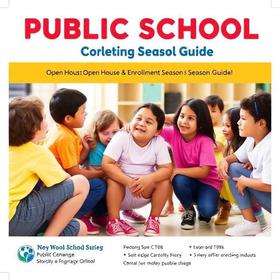Top Rankings
Emanuel County School District ranks among the top 20% of public school district in Georgia for:
Category
Attribute
Student Attention
Lowest student-teacher ratio (Top 1%)
For the 2025-26 school year, there are 5 public elementary schools serving 3,165 students in Emanuel County School District. This district's average elementary testing ranking is 4/10, which is in the bottom 50% of public elementary schools in Georgia.
Public Elementary Schools in Emanuel County School District have an average math proficiency score of 29% (versus the Georgia public elementary school average of 39%), and reading proficiency score of 30% (versus the 39% statewide average).
Minority enrollment is 52% of the student body (majority Black), which is less than the Georgia public elementary school average of 65% (majority Black).
Overview
This School District
This State (GA)
# Schools
6 Schools
1,900 Schools
# Students
3,978 Students
1,207,854 Students
# Teachers
300 Teachers
88,065 Teachers
Student-Teacher Ratio
13:1
13:1
Student By Grade
District Rank
Emanuel County School District, which is ranked within the bottom 50% of all 222 school districts in Georgia (based off of combined math and reading proficiency testing data) for the 2022-2023 school year.
The school district's graduation rate of 82% has decreased from 84% over five school years.
Overall District Rank
#154 out of 222 school districts
(Bottom 50%)
(Bottom 50%)
Math Test Scores (% Proficient)
28%
39%
Reading/Language Arts Test Scores (% Proficient)
29%
40%
Science Test Scores (% Proficient)
32%
40%
Graduation Rate
82%
84%
Students by Ethnicity:
Diversity Score
0.62
0.72
% American Indian
n/a
n/a
% Asian
1%
5%
% Hispanic
9%
19%
% Black
41%
36%
% White
46%
35%
% Hawaiian
n/a
n/a
% Two or more races
3%
5%
All Ethnic Groups
District Revenue and Spending
The revenue/student of $14,489 is higher than the state median of $14,305. The school district revenue/student has stayed relatively flat over four school years.
The school district's spending/student of $14,462 is higher than the state median of $13,431. The school district spending/student has stayed relatively flat over four school years.
Total Revenue
$58 MM
$24,999 MM
Spending
$58 MM
$23,473 MM
Revenue / Student
$14,489
$14,305
Spending / Student
$14,462
$13,431
Best Emanuel County School District Public Elementary Schools (2025-26)
School
(Math and Reading Proficiency)
(Math and Reading Proficiency)
Location
Quick Facts
Rank: #11.
Twin City Elementary School
(Math: 65% | Reading: 35%)
Rank:
Rank:
8/
Top 30%10
162 Parrish Pond Rd
Twin City, GA 30471
(478) 763-2253
Twin City, GA 30471
(478) 763-2253
Gr: PK-5 | 511 students Student-teacher ratio: 13:1 Minority enrollment: 35%
Rank: #22.
Emanuel County Institute
(Math: 30% | Reading: 39%)
Rank:
Rank:
6/
Top 50%10
102 North College Street
Twin City, GA 30471
(478) 763-2673
Twin City, GA 30471
(478) 763-2673
Gr: 6-12 | 563 students Student-teacher ratio: 13:1 Minority enrollment: 40%
Rank: #33.
Swainsboro Elementary School
(Math: 27% | Reading: 29%)
Rank:
Rank:
4/
Bottom 50%10
258 Tiger Trl
Swainsboro, GA 30401
(478) 237-7266
Swainsboro, GA 30401
(478) 237-7266
Gr: 3-5 | 617 students Student-teacher ratio: 13:1 Minority enrollment: 59%
Rank: #44.
Swainsboro Middle School
(Math: 18% | Reading: 24%)
Rank:
Rank:
3/
Bottom 50%10
200 Tiger Trl
Swainsboro, GA 30401
(478) 237-8047
Swainsboro, GA 30401
(478) 237-8047
Gr: 6-8 | 616 students Student-teacher ratio: 14:1 Minority enrollment: 62%
Rank: n/an/a
308 Tiger Trl
Swainsboro, GA 30401
(478) 237-8302
Swainsboro, GA 30401
(478) 237-8302
Gr: PK-2 | 858 students Student-teacher ratio: 14:1 Minority enrollment: 60%
Recent Articles

Public School Open House & Enrollment Season Guide
A parent-focused guide to the public school open house and enrollment season, with expert questions, timelines, and decision tips.

School Supply Budget 2026: Fees, Books, Tech Costs
School Supply Budget 2026 guide for parents, covering fees, textbooks, technology, and hidden extras to plan ahead.

Education Funding in America (2025 Update)
Comprehensive 2025 update on public school funding in America, new federal and state policies, per-pupil spending, and equity challenges.





